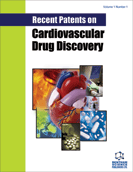Abstract
Interest in the role of thyroid hormones (TH) in heart failure is steadily increasing due to evidence for a physiological, homeostatic role of TH and the effects of altered TH metabolism on the cardiovascular system, particularly in presence of heart failure. Experimental studies have shown that altered TH metabolism modifies cardiovascular homeostasis by inducing alterations of cardiac histology, cardiomyocyte morphology and gene expression and consequently, of diastolic and systolic myocardial function. Clinical studies have shown that mild forms of thyroid dysfunction, both primary (subclinical hypothyroidism and subclinical hyperthyroidism) and secondary (low T3 syndrome) have negative prognostic impact in patients with heart failure. In these patients, the administration of synthetic triiodothyronine (T3) was well tolerated and induced significant improvement in cardiac function without increased heart rate and metabolic demand. Large multicenter, placebo-controlled prospective studies are necessary to evaluate the safety and prognostic effects of chronic treatment with TH replacement therapy in patients with heart failure. The article also discusses recent patents in this field.
Keywords: Thyroid hormone, triiodothyronine, heart failure
 19
19


